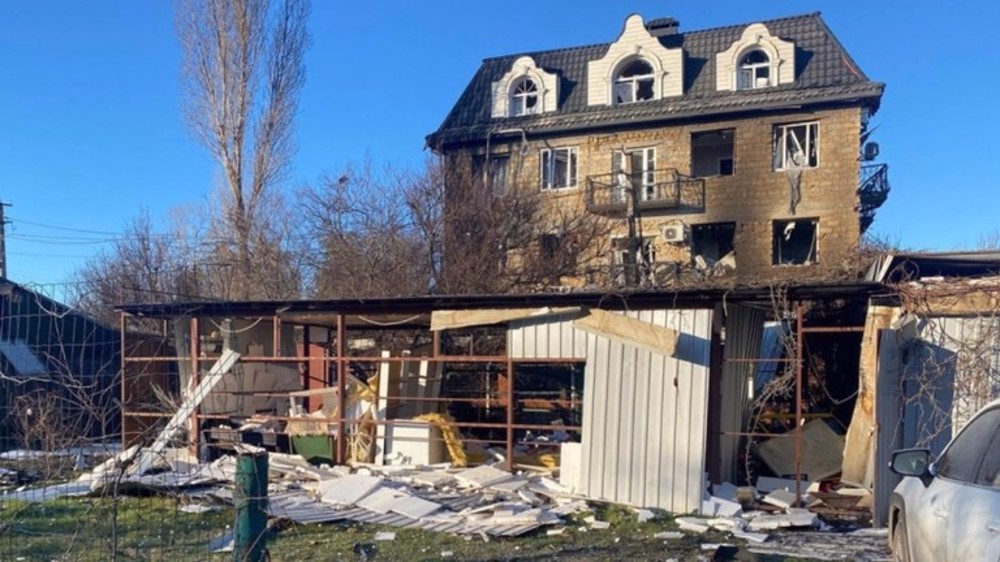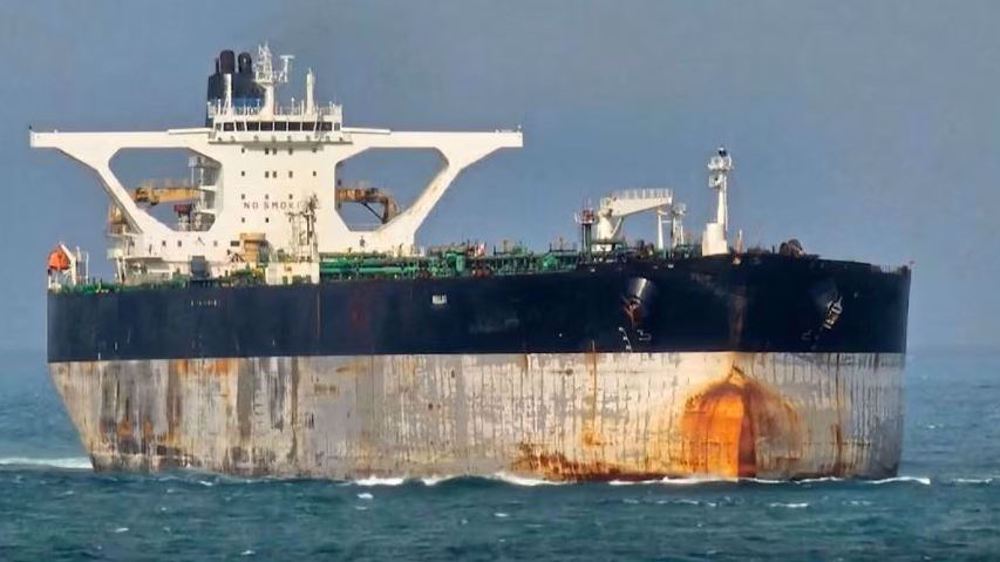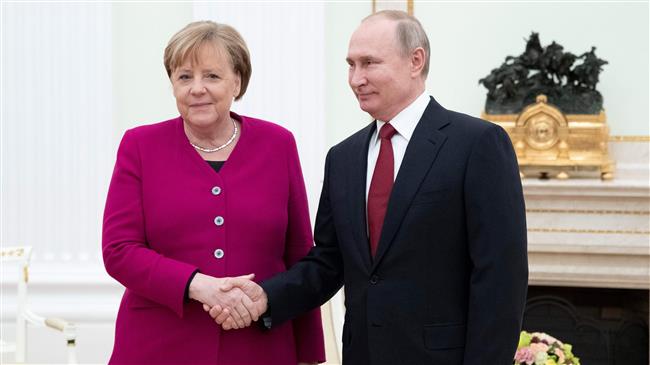Russian opposition figure Navalny discharged from German hospital
The German hospital that had admitted Russian opposition figure Alexei Navalny with alleged poisoning says he has now been discharged.
Navalny was discharged from inpatient care at Charite Hospital in Berlin on Tuesday, after 32 days of treatment, 24 of which were spent in intensive care, the hospital announced on Wednesday.
“Based on the patient’s progress and current condition, the treating physicians believe that complete recovery is possible,” the hospital said in a statement.
However, the hospital claimed that “it remains too early to gauge the potential long-term effects of his severe poisoning.”
Russia welcomed the news of Navalny’s recovery, saying he was free to return to the country like any other citizen.
Kremlin spokesman Dmitry Peskov told reporters on a conference call on Wednesday that Russia was pleased to see that Navalny was making a recovery and had been discharged from hospital.
Navalny, 44, was airlifted to Germany on August 22. He had collapsed during a domestic flight in Russia on August 20 and had been taken to a local hospital prior to his transfer to Berlin. Navalny’s aides have claimed he was poisoned after drinking a bottle of water at a hotel before the flight.
Earlier this month, Germany said the Russian opposition figure had been poisoned with a Novichok nerve agent before his evacuation to Berlin. But the Russian doctors who tested his blood for poisoning before he was moved to Germany said the tests were negative.
And on Tuesday, Peskov said Russian investigators believed Navalny’s allies had removed evidence in the case, hampering a probe.
Western governments, meanwhile, have been insinuating that Russia was behind the alleged poisoning. The United States has threatened to impose more sanctions on Russia.
The Russian government has denied any involvement in any attack on Navalny, and has accused the United Sates of using the case as a pretext to hinder the construction of a Russian gas pipeline project to Europe known as Nord Stream 2.
US has ulterior motive in making allegations of poisoning: Russia
On Tuesday, the director of Russia’s foreign intelligence SVR, Sergey Naryshkin, said that Washington was seeking to block the Nord Stream 2 project in an attempt to prevent Russia from efficiently providing gas to Europe so that it could sell more American liquefied natural gas (LNG) to the continent itself.
“It is extremely important for Washington to end this project,” Naryshkin said, adding that if the project is dropped, demand for American LNG would increase in European countries.
The 12-billion-dollar Nord Steam 2 project would double the capacity of an existing line sending Russian gas to Germany with the construction and operation of two gas pipeline branches with a total throughput capacity of 55 billion cubic meters of natural gas per year.
In December last year, US President Donald Trump signed off on sanctions against companies involved in the Nord Stream 2 project under the Baltic Sea.
On Thursday, members of the European Parliament also demanded that Germany cancel the construction of the pipeline amid the allegations of Navalny’s poisoning.
Naryshkin expressed hope that the EU would rely on common sense before the “cold winter” despite US pressure, likening the potential halting of Nord Stream 2 to “cutting off the nose to spite the face.”
Russia hopes Germany would persist
Meanwhile, Russia’s Ambassador to Germany Sergei Nechayev also expressed hope that the German government would continue its support for the Nord Stream 2 project.
“As for Nord Stream 2, this is an international economic project. It meets European standards and has received all necessary permits. It meets the interests of Germany and helps to make its products more competitive at the international level and to cover its energy needs amid the abandonment of nuclear energy and coal,” Nechayev said, adding that “the federal government is still supporting the project and we hope that it will be so.”
“Of course, Germany and the EU can determine their own energy security, but US senators should not be allowed to send letters with threats to European companies and authorities,” he added.
European partners Royal Dutch Shell, OMV, Engie, Uniper, and Wintershall are financing 50 percent of the Nord Stream 2 project, up to 950 million euros (1.1 billion dollars) each. Swiss-Dutch company Allseas immediately stopped undersea work on the pipeline last year after Trump signed off on the sanctions against the companies working on the project.
Russia rejects ultimatums, threats
Nechayev further expressed regret about the anti-Russian hysteria in connection with Navalny’s case, saying Moscow did not accept ultimatums and threats of sanctions.
He made the comments in response to Berlin’s demands to investigate what happened to Navalny, saying that in order to start a criminal trial in Russia, samples of his medical tests were needed.
While calling for an investigation, Germany has withheld Navalny’s biomaterial. Russian prosecutors have asked Germany to provide the medical records of Navalny for a comparative study of his condition given that no traces of poison were found in his blood at the Russian hospital.
“Germany says that the Russian authorities should conduct an investigation in Russia, there allegedly was the use of a chemical warfare agent. We need samples so that a criminal investigation could be started at all. In accordance with the law, we cannot start an investigation of a crime without evidence,” Nechaev said.
France urges Russia to give answers or face consequences
Separately on Tuesday, French President Emanuel Macron asked for an immediate explanation from Russia over the alleged poisoning of Navalny.
Macron made the demand during a speech to the United Nations General Assembly, warning that Paris would not allow its “red lines” on the use of chemical weapons to be crossed.
“We will not tolerate the use of chemical weapons in Europe, in Russia, or in Syria,” Macron said. “This clarification must be swift and flawless because we will enforce our red lines.”
Macron, however, did not say what would be done if Russia did not provide explanations.
This is while the French Foreign Ministry has said it is reviewing a request from Russia’s prosecutor general to help in Navalny’s case.
“We have received a request from Russia. It is under examination,” French Foreign Ministry spokeswoman Agnes von der Muhll told reporters in Paris on Tuesday.
“The priority remains for Russia to shed light on the circumstances and responsibilities behind the assassination attempt that took place on its territory against a member of the Russian political opposition using a nerve agent,” she claimed.
‘Entire emigration movement’: 200,000 Israeli settlers leave since 2023
US ‘regime change’ plot in Venezuela: From 2002 Chavez coup to 2026 Maduro kidnapping
Israel launches airstrikes across Lebanon, targeting villages, refugee camp
Gen. Soleimani, architect of the Axis of Resistance, reshaped regional power, deterrence
VIDEO | Protest against US aggression on Venezuela held in Rome
VIDEO | London protesters condemn US aggression against Venezuela
VIDEO | Press TV's news headlines
VIDEO | Against erasure: Palestinians say survival in Gaza affirms their right to land















 This makes it easy to access the Press TV website
This makes it easy to access the Press TV website